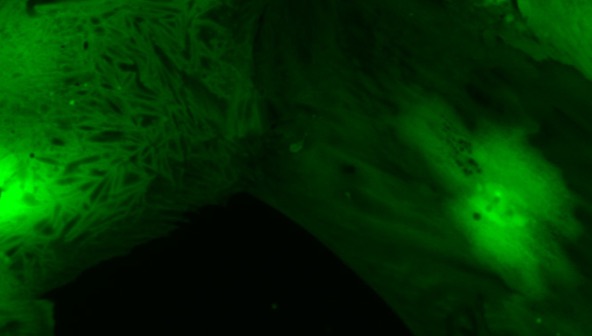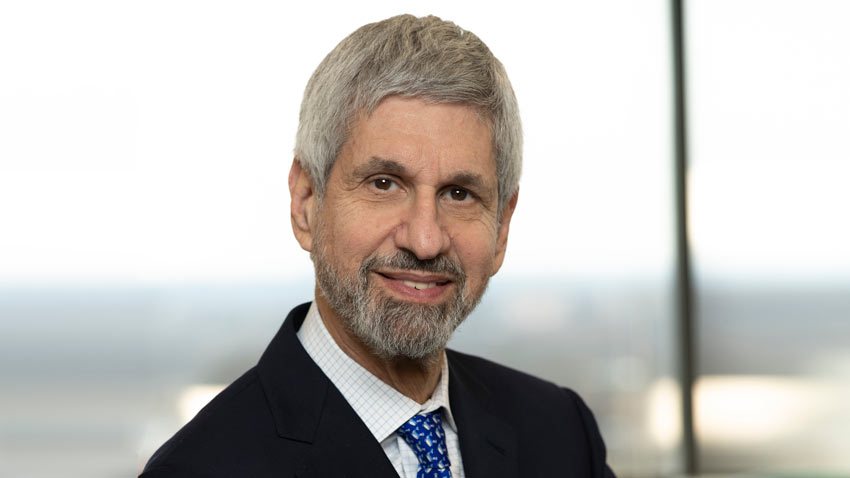CHILDREN'S NATIONAL RESEARCH INSTITUTE ACADEMIC ANNUAL REPORT 2021

From the Interim Chief Research Officer
The 2020-2021 Children’s National Research Institute Annual Report
As one of the nation’s oldest children’s hospitals, our history is distinguished by our steadfast dedication to keep the needs of children and their families at the heart of all we do and to make our children healthy, stronger and more resilient.
We recently marked an important milestone in the life of Children’s National: 150 years of providing pediatric care, research and community commitment to the children of Washington, D.C., and the nation. This past year will also be remembered for many other, more somber milestones as a result of the ongoing devastating impacts of COVID-19 and the continuing struggle for our country to reach equity for all.
However, it is the strong history of groundbreaking research here at Children’s National coupled with the world-renowned expertise and diversity of our faculty and staff that give me hope for better days on the horizon. We are proud of many things, some of which we will outline in the stories within this report, but others that bear note as well, including:
- Contributing our immunology and pediatric expertise to fighting COVID-19 and the SARS-CoV-2 virus. In the last year, the research team at Children’s National has taken their expertise and focus in this new direction to enhance global understanding of how this previously unknown threat impacts people of all backgrounds and ages.
- Welcoming the first occupants at our Children’s National Research & Innovation Campus, including the Children’s National Rare Disease Institute and JLABS @ Washington, DC, from Johnson & Johnson Innovation, LLC. Some of the best science ideas and projects come from the clinical world. Close interaction between the clinicians and the scientists will enhance those “spark” encounters. This campus will truly be a place for bench-to-bedside research and innovation that will enhance how we serve patients at Children’s National and worldwide.
- The creation of outreach, mentorship and pipeline programs designed to reach a larger, more diverse group of medical students and scientists, and increase diverse students’ interest in academic pediatrics at Children’s National, which led to the most diverse incoming class of residents in June 2021.
Our position today as the number seven children’s hospital in the country, home to the nation’s number one neonatal intensive care unit (NICU), and one of the top-funded pediatric research institutions in terms of National Institutes of Health support, however, has only been possible thanks to our dedication to providing exemplary care for children. At the same time, we have maintained a focus on conducting exemplary pediatric research and providing world-class training and education in pediatric medicine. Our research funding has grown to more than $79 million and our more than 300 research faculty and staff are dedicated to finding answers to many of the health challenges in childhood.
This year’s report spotlights some of our recent work across the organization and around the world, which was well underway and continues despite the ongoing global battle with COVID-19, including:
- Global health efforts on the African continent aimed at tackling some of the most pervasive and devastating diseases for children and adults, including cerebral malaria.
- Explorations of how a more diverse set of reference genomics and specific epigenetic explorations can change our understanding of diseases, how it affects the people of Central Africa and their descendants, and how to tailor treatments to the unique needs of people no matter where they come from.
- The renewal of the flagship District of Columbia Intellectual and Developmental Disabilities Research Center (DC-IDDRC) – a 20-year, NIH-funded partnership across four academic institutions dedicated to understanding and treating developmental disabilities. In addition, we received funding from NIH for a new training program on neurodevelopmental disabilities associated with the DC-IDDRC.
- The appointment of two internationally recognized researchers to leadership positions within Children’s National: Tarik Haydar, Ph.D., who now directs our Center for Neuroscience Research, and Muller Fabbri, M.D., Ph.D., who serves as associate director of the Cancer and Immunology Research.
- Major milestones in efforts to commercialize more devices and treatments tailored specifically to the needs of children with the opening of the JLABS @ Washington, DC, on the new Children’s National Research & Innovation Campus.
- The funding from the NIAID for a natural history study of 1,000 children who have survived COVID-19.
And we’re also celebrating the career of our longtime director and chief academic officer at Children’s National Hospital, Mark L. Batshaw, M.D.. Dr. Batshaw will retire from his current position at the end of this year after 23 years at our institution. But his impact on raising the profile of pediatric research at our hospital and across the United States, and his contributions to the collective knowledge about developmental disabilities in children are indelible. Everyone at Children’s National, across research and clinical communities and beyond our walls, is thankful to have worked with, and learned from, one of the best clinician-scientists of our time.
We hope you enjoy reading these highlights. You can read more and sign up for e-newsletters on specific pediatric clinical and research topics, at Innovation District.
We eagerly look forward to what the next decades hold in our quest to make sure that all children grow up stronger, even in the face of great medical and scientific challenges that lie ahead—both known and unknown.
Vittorio Gallo, Ph.D.
Interim Chief Academic Officer and Interim Director of Children’s National Research Institute, Children’s National Hospital
Scientific Director, Children’s National Research Institute
Hudson Chair in Pediatrics
Associate Dean for Child Health Research
George Washington University School of Medicine and Health Sciences

